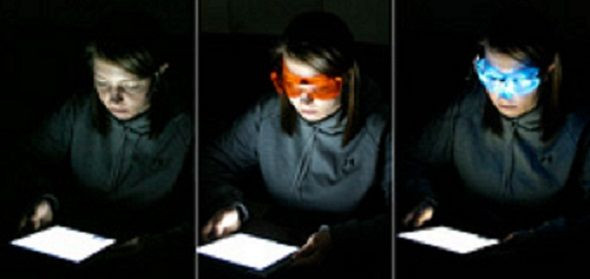Warning to Teens: Gadgets Can Disturb Your Sleep

Using tablets and mobile phones just before bed time can delay sleep, a new small study finds.
According to researchers from Lighting Research Center (LRC) at Rensselaer Polytechnic Institute, light from these devices suppresses melatonin that in turns delays sleep, especially in teens.
The study was based on a small study group of 13 people. Participants were asked to use self-luminous devices to watch movies, read or play games before they went to bed.
"Our study shows that a two-hour exposure to light from self-luminous electronic displays can suppress melatonin by about 22 percent. Stimulating the human circadian system to this level may affect sleep in those using the devices prior to bedtime," said Mariana Figueiro, associate professor at Rensselaer and director of the LRC's Light and Health Program.
Researchers were able to predict the levels of suppression of melatonin in the body based on model of human circadian phototransduction. Two hour exposure to light from these devices significantly lowered the amount of melatonin produced in the body.
Researchers say that electronic devices must be made circadian friendly so that people sleep properly at night and not end up feeling sleepy during daytime. They urge manufacturers to design devices that increase circadian stimulation at day to increase alertness and decrease stimulation during night to help people sleep better.
"Technology developments have led to bigger and brighter televisions, computer screens, and cell phones. To produce white light, these electronic devices must emit light at short wavelengths, which makes them potential sources for suppressing or delaying the onset of melatonin in the evening, reducing sleep duration and disrupting sleep. This is particularly worrisome in populations such as young adults and adolescents, who already tend to be night owls," said LRC Research Specialist Brittany Wood, co-author of the study.
Melatonin is hormone that is produced at night. The hormone tells the body that it's night and time to sleep. Exposure to short-wavelength light can slow and sometimes, suppress the production of this hormone. A disturbed internal clock can lead to various problems like diabetes, obesity and even certain cancers. Inability to fall asleep at night can lead to depression and anxiety.
In the study, participants were divided into three groups; first group wore a pair of clear goggles fitted with blue LEDs while using tablets; second group wore orange-tinted glasses, capable of filtering out the short-wavelength radiation that can suppress melatonin and the third group wore no goggles. The first group was true positive because the blue light strongly suppresses melatonin production in the body.
The participants' personal light exposure was measured with the help of a device known as Dimesimeter that is worn close to the eye. The device is developed by the LRC that continuously records circadian light and activity levels.
"We recommended dimming these devices at night as much as possible in order to minimize melatonin suppression, and limiting the amount of time spent using these devices prior to bedtime," Figueiro said.



























